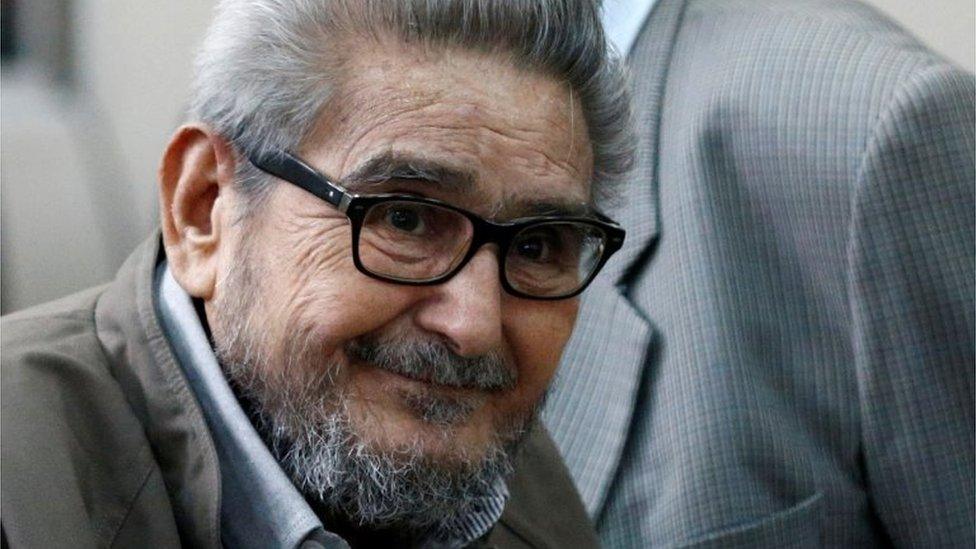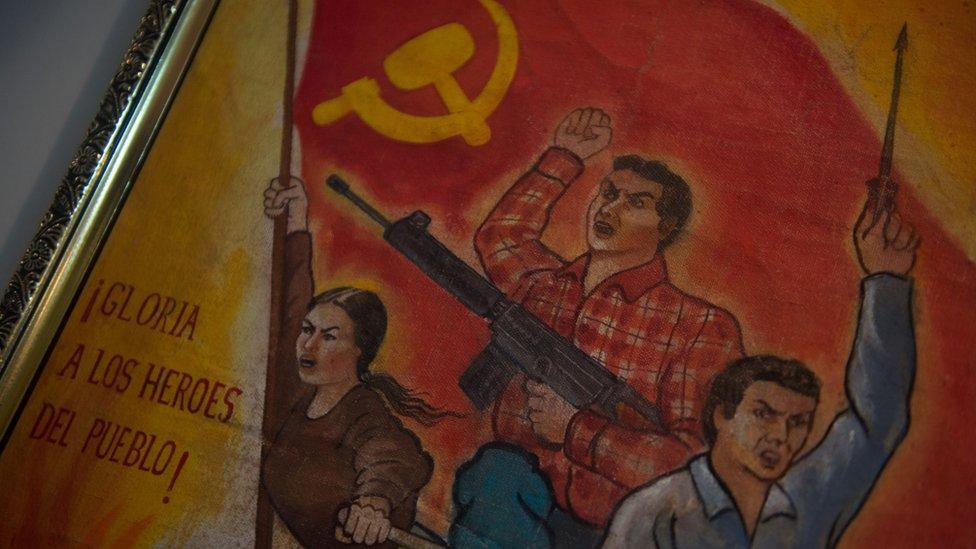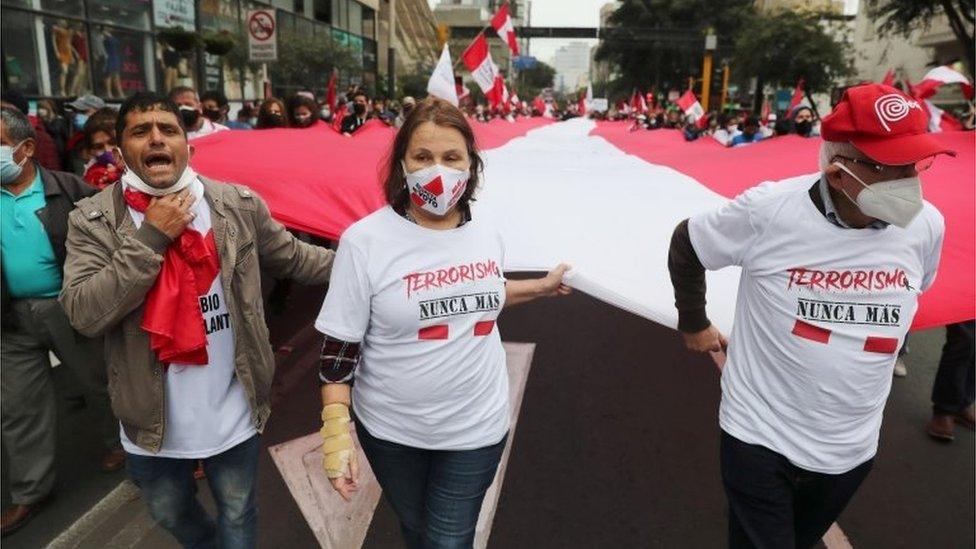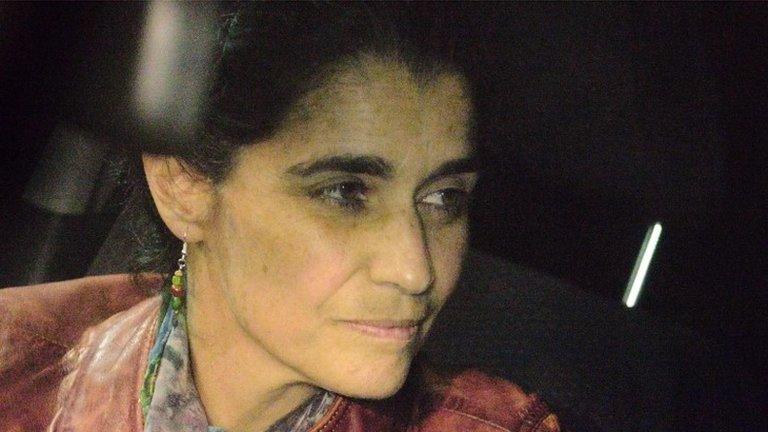Abimael Guzmán: Peru ponders fate of Shining Path leader's body
- Published

Abimael Guzmán died in prison on Saturday while serving a life sentence for terrorism and treason
Peruvian officials are expected to decide later on Monday what to do with the body of Abimael Guzmán, the founder of the Shining Path rebel group, who died in prison on Saturday.
Almost 70,000 people died or disappeared in the conflict between the Maoist group and the Peruvian state.
There are fears that if he were to be buried, his gravesite could become a rallying point for extremists.
Peru's justice minister said he would like to see the body cremated.
"The most appropriate thing would be a cremation so there's no place at which certain Peruvians can pay tribute to this person," he said.
But Prime Minister Guido Bellido stressed that the decision would be up to the public prosecutor's office and that the government would respect whatever decision is taken.

Who are Shining Path?

Shining Path is a militant group founded in the late 1960s by former university philosophy professor Abimael Guzmán
It became a guerrilla group in the 1980s and waged a bloody insurgency against the Peruvian government
It almost brought the Peruvian state to its knees in the 1980s with an estimated membership of 10,000
Almost 70,000 people died or disappeared in more than a decade of internal conflict

Abimael Guzmán died at the age of 86 while serving a life sentence for terrorism and treason in a maximum security jail.
He died just a day short of the 29th anniversary of his capture in the capital, Lima, and his body is currently in a morgue in the city of Callao.

Peruvians carrying banners reading "Terrorism never again" marked the anniversary of Guzmán's capture
Peruvian law stipulates that the remains of a prisoners should be handed over to his next of kin.
In the case of Abimael Guzmán, that is Elena Iparraguirre, his second-in-command in Shining Path whom he married in prison in 2010.
But as Iparraguirre is serving a life sentence for terrorism and Guzmán has no other living direct relatives, the matter has landed with the public prosecutor's office.
On Sunday, a court in Callao rejected a request filed by Iparraguirre to have her husband's body handed over to a former Shining Path member known as Comrade Bertha, whom she had given power of attorney to act on her behalf.
It is believed Iparraguirre wants her husband's body to be buried.
But with the memory of the bloody insurgency he led in the 1980s and 1990s still very raw in Peru, many would prefer to see him cremated and his ashes scattered over the Pacific Ocean.
While Shining Path lost much of its power after the arrest of Guzmán and Iparraguirre in 1992, there are still remnants active in the coca-producing region.
Related topics
- Published25 May 2021

- Published12 September 2017
